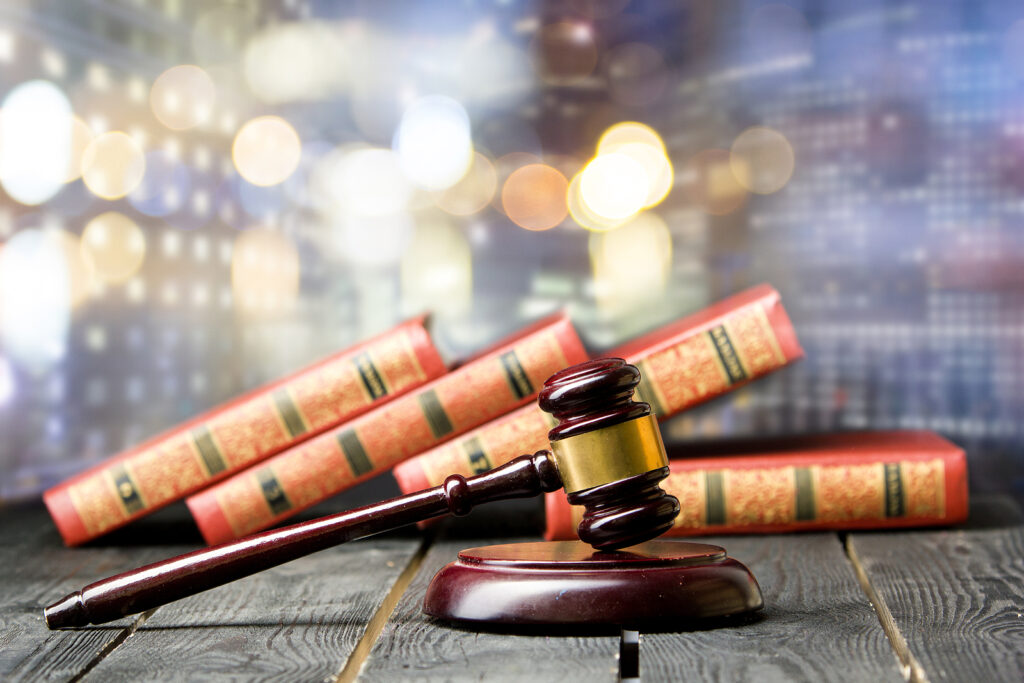Merriam-Webster Legal Dictionary defines a personal injury as, “harm to one’s body, mind, or emotions broadly.” A personal injury typically results in a wide range of damages and losses, like medical bills, hospital bills, lost wages, pain, suffering, and more. Although it is not required by state or federal law to file a personal injury claim after being injured physically, mentally, or emotionally, there are many cases in which a victim should do so.
Continue below to learn under which circumstances an accident victim might want to make a personal injury claim, and how to get started on your own in Indiana.

Personal Injury Claims are Not for Property Damages
Merriam-Webster Legal Dictionary further defines a personal injury as, “an injury that is not to one’s property.” This is important to note. Personal injury claims do not include property damages, such as automotive repair or damaged personal belongings after a car accident. Personal injury claims are solely meant to recover compensation for physical, mental, or emotional damages. However, a person who suffers a personal injury may also make a claim for property damages if need be.
Additionally, personal injury claims are reserved for those who are wrongly injured or killed by another liable party, either as a result of a negligent action or inaction, or an intentional act. Those who lost a family member due to the negligence of another may recover damages in a personal injury wrongful death claim. In such cases, a personal injury claim would be beneficial to a victim’s quality of life, now and in the future.
The most common types of personal injury cases are auto accidents, drunk driving accidents, motorcycle accidents, large truck accidents, slip and fall accidents, medical malpractice, construction accidents, workplace accidents, child injuries, defective products, and wrongful deaths.
When to Pursue a Personal Injury Claim
Why is it a good idea to file a personal injury claim after being injured in a wrongful accident? Personal injury survivors experience a wide range of stressors after their accident, including an influx of insurance claims, financial obligations, pain-and-suffering, and much more. This level of stress is heightened even more so for personal injury victims who are the primary wage earners or sole caretakers of their family. During this time, one’s sole focus as an injured victim should be to heal; not deal with these pressures and concerns.
Under these common circumstances, it would be considerably advantageous to file a personal injury claim. You can focus solely on your recovery, plus obtain compensation for your damages and losses caused by another person’s failure to use reasonable care. The first step in the legal process is to contact a trusted and experienced Indiana personal injury law firm. They have the knowledge, skills, resources, and drive to obtain the best possible outcome for your case.
Hiring an Attorney for Your Personal Injury Case
Many accident victims wonder if they need to hire an attorney to represent their case or if they can just represent themselves. Hiring a personal injury lawyer to represent your accident case is vital. You never want to represent yourself because insurance companies and large corporations will use every resource in their power to diminish the value of an accident claim. Such parties are extensively outfitted, and therefore, successful at doing so against those representing themselves.
A seasoned Indiana personal injury attorney will know how to combat all of the questionable strategies used by insurance adjusters and corporations, and ultimately ensure that you recover the maximum settlement or verdict for your claim.
Were you or your loved one wrongfully injured in an accident in Indiana? Contact the Law Office of Craven, Hoover, and Blazek P.C. at 317-881-2700 to schedule a free case evaluation with a seasoned Indianapolis Indiana accident attorney you can trust to recover the settlement you deserve. We represent victims all throughout the state of Indiana and Indiana residents injured in other states.
Related Posts:
Is My Job-Related Injury Covered By Workers’ Compensation?
The First Questions You Should Be Asking After a Personal Injury
Can I Still Sue the Other Driver if My Car Accident Injuries Were Not Apparent at the Scene?

